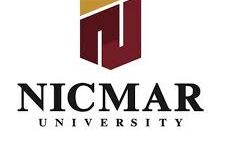HCGMCC Draws Patients From Across The Globe For Safe, Effective & Economical Treatment
Nashik, Feb 12: Prof Dr Raj Nagarkar, Chief of Surgical Oncology & Robotic services of HCG Manavata Cancer Centre (HCGMCC) – Nashik, has set a new world record by performing a thousand robotic-assisted surgeries within a span of only fifty months or four years. The 1000th surgery, successfully performed last month on a patient with prostate cancer, lasted for three hours, and the patient was discharged within seventy-two hours. Over the years, Dr Nagarkar has performed several complex robotic-assisted procedures including oncology surgeries for prostate, colon, oesophageal, lung and cervical, as well as procedures in hernia repair, gallbladder stones, appendicitis, colorectal, gynaecological, urological, weight loss, thoracic and fundoplication surgeries.
“The milestone, while is an achievement, I am just glad that my patients received the care and treatment they deserved. At HCG Manavata Cancer Centre we have the state-of-the-art Versius Robotic System which provides a three-dimensional image that is capable of magnifying up to 10 times. This provides our surgeons to operate with precision, resulting in minimal blood loss and reduced co-lateral damage to tissues eliminating chances of infection. It has revolutionized the minimally invasive surgery contributing to optimized workflows and personalized patient care. The use of robotics is a transformative shift in surgery, promising quicker recovery times, less postoperative pain, and enhanced patient well-being,” says Prof Dr Raj Nagarkar, Managing Director, Chief of Surgical Oncology & Robotic services, HCG Manavata Cancer Centre & Hospitals.
With a reputation for successfully treating even the most complicated cases, HCGMCC is a beacon of hope for even international patients looking for safe, effective and economical treatments.
“Our hospital infrastructure is on par, if not better, with any of the hospitals in the first world. Our presence in a tier 2 city has played a crucial role in establishing HCGMCC as a prominent destination on the medical tourism map. This is attributed not only to our cost-effectiveness but also to our provision of world-class medical facilities. Over the years, we have gained a steady inflow of patients from outside of India and today, they roughly constitute 15 per cent of our total capacity. These patients are mostly from the Middle East, Africa, Canada, Bangladesh and Russia. We have also treated a smaller number of patients from the United Kingdom and the United States,” adds Dr Nagarkar.
The number of new cancer cases in India is rising due to population growth and better diagnoses. In 2020, India ranked third in the world for new cancer cases and is projected to have 2 million new cancer cases each year.
“In India, one in nine people are likely to develop cancer in their lifetime and the incidence of cancer cases is estimated to only increase over the years. Regular medical check-up for early diagnosis is the cornerstone of successful cancer treatment. While almost half of cancer cases are preventable, the remaining cancer cases that escape early diagnosis need treatment. A large part of the treatment is achieved through surgeries and fortunately, the advancements in robotics are making procedures extremely effective with a success rate of over 95 per cent. Robotic assisted surgery offers consistent, reliable results with decreased blood loss, pain and recovery times as compared to traditional surgical methods,” concludes Dr Nagarkar.
 Newspatrolling.com News cum Content Syndication Portal Online
Newspatrolling.com News cum Content Syndication Portal Online







